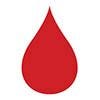FDA Approves New Chemotherapy Component for Most Common Childhood Cancer
By Lee Greenberger, Ph.D., LLS Chief Scientific Officer
The U.S. Food and Drug Administration (FDA) yesterday approved asparaginase erwinia chrysanthemi (recombinant)-rywn (Rylaze™) as a component of a chemotherapy regimen used to treat acute lymphoblastic leukemia (ALL) and lymphoblastic lymphoma (LBL) in patients who are allergic to other commonly used asparaginase products. ALL is the most common type of childhood cancer, with nearly 3,000 new cases diagnosed each year in the U.S.
Most children with ALL are cured of their disease if they complete treatment. Asparaginase is a standard part of a cocktail of drugs used to treat ALL that has been used highly effectively for more than 40 years. It works by depleting ALL cells of necessary amino acids, leading to selective death of leukemic cells but not normal cells. However, this enzyme is manufactured by a complex process derived from bacteria, has been plagued by manufacturing failures resulting in drug shortages, and about 15% or more of patients develop hypersensitivity to the asparaginase depending upon the exact source and process used to manufacture this enzyme. This results in incomplete dosing of asparaginase treatment. Children who do not receive the full course of asparaginase treatment have significantly lower survival rates.
Enter recombinant asparaginase derived from Erwinia chrysanthemi. To understand the importance of this innovation, first you have to appreciate that FDA-approved asparaginases are derived from two type of bacteria: E. Coli and Erwinia chrysanthemi. Asparaginase derived from E. Coli can be highly immunogenic, which can be reduced by modifying the enzyme with a process called pegylation. Asparaginase derived from Erwinia can be effective in patients who are immunogenic to asparaginase derived from E. Coli and was approved for this indication in 2011.
Even then, immunogenicity can occur to Erwinia. A major problem with all approved all asparaginase products is that it is difficult to make and therefore can lead to drug shortages. Recombinant asparaginase derived from Erwinia solves this problem. With recombinant asparaginases, the gene encoding the protein is placed in another bacterial system that can easily produce large amounts of asparaginase. So, supply challenge solved!
Clinical trials with the new form of asparaginase derived from Erwinia, called Rylase, has been shown to maintain the same clinically meaningful level of asparaginase that is previously known to correlate with excellent disease control. So, this new drug fills an extremely important need. FDA reviewed asparaginase (recombinant)-rywn under both Fast Track and Orphan Drug status to speed its availability in the U.S. The company, Jazz Pharmaceuticals, said it will be available by mid-July and that it expects a reliable supply.
